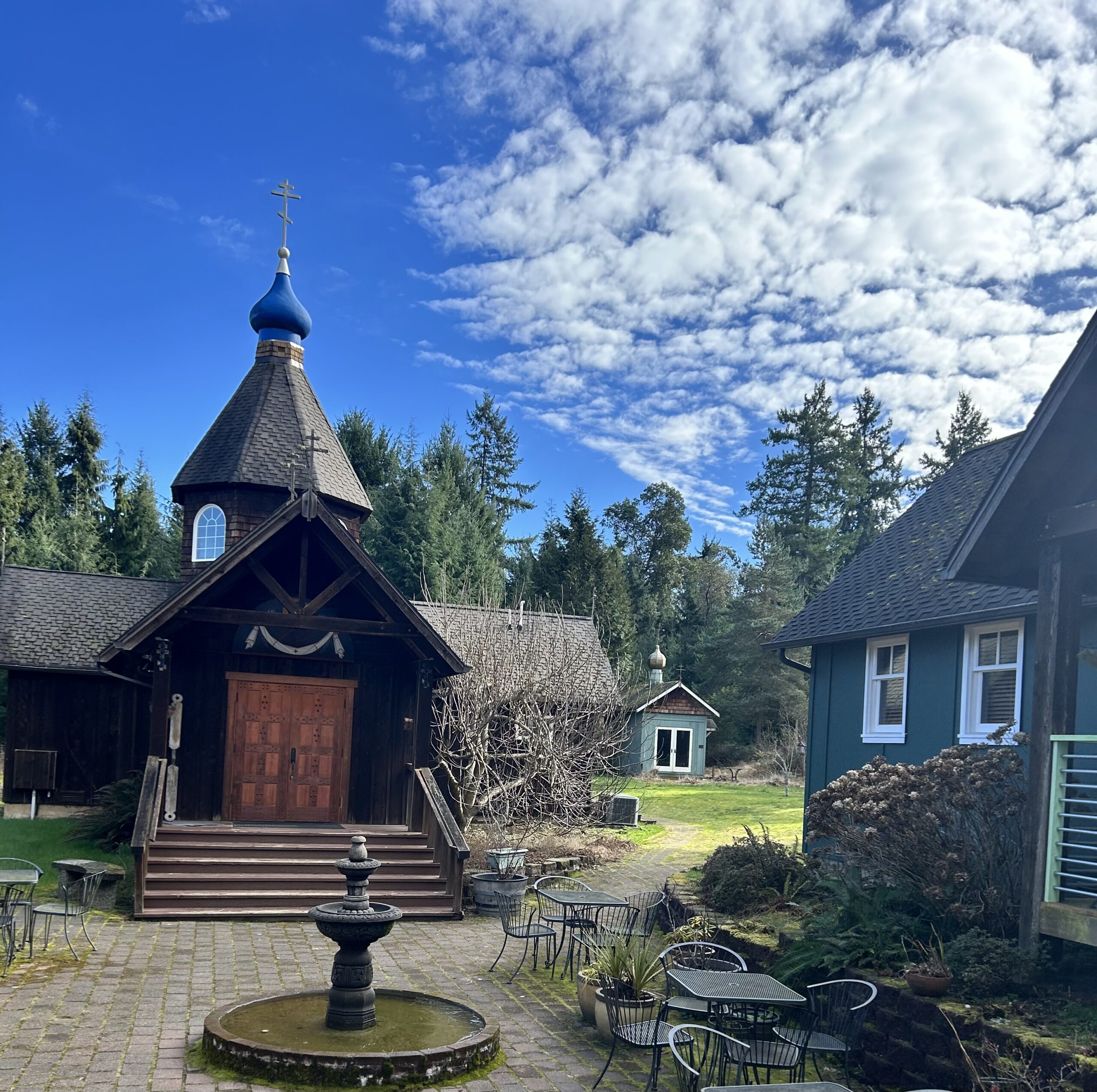And Our Struggle for Repentance

In our struggle on the path to God, repentance must be the central theme. In our fallen state, our brokenness keeps us separated from God, for our darkened nous can not see clearly. Repentance changes our nous, clearing the way for complete union with Christ, and making us whole. Only in repentance will we find the true meaning of life, for only in repentance can one enter into communion with God. This life has been given to us for one purpose, that we might be deified, and be united with God, as was His purpose from the very beginning
“Ask for repentance in your prayer and nothing else, neither for divine lights, nor miracles, nor prophecies, nor spiritual gifts—nothing but repentance. Repentance will bring you humility, humility will bring you the Grace of God, and God will have in His Grace everything you need for your salvation, or anything you might need to help another soul (Elder Paisios of Mount Athos).”
Love in Christ,
Abbot Tryphon
Saturday February 17, 2024 / February 4, 2024
37th Week after Pentecost. Tone three.
Venerable Isidore of Pelusium, monk (436-440).
St. George, prince of Vladimir (1238).
Venerable Cyril, abbot, wonderworker of New Lake (Novgorod) (1532).
New Hieromartyr Methodius bishop of Petropavlovsk (1921).
New Hieromartyrs Eustaphius, John, Alexander, Sergius, John, Theodora, Aleksander, Nicholas, Alexis, Nicholas, Alexis, Alexander, Arcadius, Boris, Michael, Nicholas, Alexis, Andrew, Demetrius, John, Peter priests, Martyr Seraphim, Virgin-martyrs Rafaila, Anna, Catherine, and Martyrs John, Basil, Demetrius, Theodore, and Demetrius (1938).
Venerable Abraham and St. Coprius, monks, of Pechenga (Vologda) (15th c.).
Martyrs Jadorus and Isidore who suffered under Decius (249-251).
Hieromartyr Abramius, bishop of Arbela in Assyria (ca. 344-347).
Venerable Nicholas the Confessor, abbot of the Studion (868).
St. John, of Irenopolis (325).
Venerable Aldate, hieromartyr of Gloucester, England (6th c.) (Celtic & British).
St. Modan, abbot of Stirling and Falkirk.
Martyr Theoctistus (1686) (Greek).
St. Jasim the Wonderwoker (1686) (Greek).
New Martyr Joseph of Aleppo (1686) (Greek).
Hieromartyr Phileas, bishop of Thmuis and martyr Philoromus the Magistrate (303).
St. Evagrius, fellow-ascetic of St. Shio of Mgvime (6th c.) (Georgia).
The Scripture Readings
1 Thessalonians 5:14-23
14 Now we exhort you, brethren, warn those who are unruly, comfort the fainthearted, uphold the weak, be patient with all. 15 See that no one renders evil for evil to anyone, but always pursue what is good both for yourselves and for all.
16 Rejoice always, 17 pray without ceasing, 18 in everything give thanks; for this is the will of God in Christ Jesus for you.
19 Do not quench the Spirit. 20 Do not despise prophecies. 21 Test all things; hold fast what is good. 22 Abstain from every form of evil.
Blessing and Admonition
23 Now may the God of peace Himself sanctify you completely; and may your whole spirit, soul, and body be preserved blameless at the coming of our Lord Jesus Christ.
Luke 17:3-10
3 Take heed to yourselves. If your brother sins against you, rebuke him; and if he repents, forgive him. 4 And if he sins against you seven times in a day, and seven times in a day returns to you, saying, ‘I repent,’ you shall forgive him.”
Faith and Duty
5 And the apostles said to the Lord, “Increase our faith.”
6 So the Lord said, “If you have faith as a mustard seed, you can say to this mulberry tree, ‘Be pulled up by the roots and be planted in the sea,’ and it would obey you. 7 And which of you, having a servant plowing or tending sheep, will say to him when he has come in from the field, ‘Come at once and sit down to eat’? 8 But will he not rather say to him, ‘Prepare something for my supper, and gird yourself and serve me till I have eaten and drunk, and afterward you will eat and drink’? 9 Does he thank that servant because he did the things that were commanded him? I think not. 10 So likewise you, when you have done all those things which you are commanded, say, ‘We are unprofitable servants. We have done what was our duty to do.’ ”
